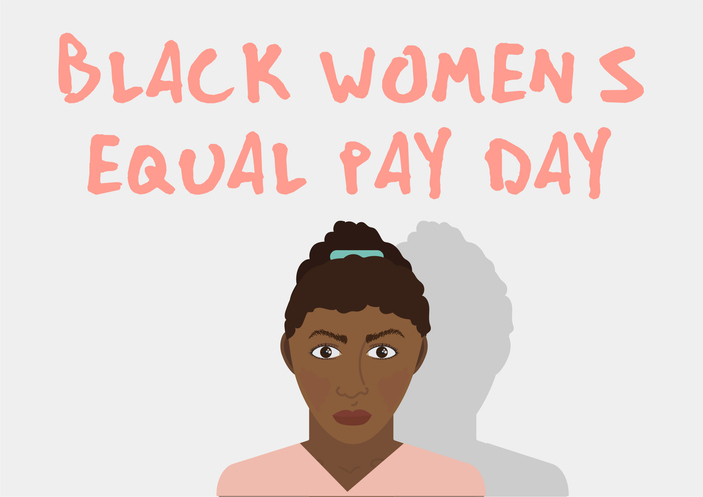Black Women’s Equal Pay Day Is Today!
Source: Jessica Girvan / Getty
When she was 11 or 12, Monifa Bandele remembers volunteering at her mother Marie’s workplace. It was in the heart of South Brooklyn, in the Fort Greene Housing Projects and Ms. Marie, as she’s affectionately known, was a social worker and the director of a relatively new program in the city called WIC–Women, Infants and Children. Its mission was to help ensure the health and wellbeing of mothers and children.
“I remember volunteering there a lot during those years, and I would see Black woman after Black woman who, despite the fact that they worked, still did not earn a wage that allowed them to feed and care for their children,” said Bandele. “Those memories have motivated me to work on gender justice—especially where it intersects with race, class and identity,” she concluded.
Today, Bandele is the Senior Vice President of MomsRising, a one million person membership-based, online and on-the-ground organization of mothers and their families. Their campaigns, from maternal morbidity to voter mobilization, have been widely successful, in part because of their ability to work well in coalition to achieve their goals—including the campaign to ensure that equal pay for Black women becomes a reality.
Source: LeoPatrizi / Getty
This year, the broad coalition of primarily women-led organizations like MomsRising, marked today by having people rally together as boldly as possible. MomsRising is honoring the call by having their members participate in a vigorous social media campaign.
And people are doing it, determined to reverse the terrible statistics that demonstrate that not only do Black women face all forms of discrimination in the workplace, including being segregated into the roles with the least mobility, they’ve also seen legislative movement on the issue stall over the last 20 years. This, despite Black women earning a mere 66 cents on the dollar compared to white men. In some states, the wage gap is even more vulgar, with Black women earning as little as 53 cents on the dollar for full time, year-round workers and 46 cents on the dollar for part-time and part-year workers.
Source: Adam Berry / Getty
From the National Organization for Women:
“Based on trends during the last two decades, it will take over 200 years—until 2227—for Black women’s pay to equal White men’s for full-time year-round workers, and until 2362 to reach pay equity for all with earnings.
These shocking projections point to the low job quality and poor advancement prospects faced by many Black women, who are more likely to be in the labor market and, when they are, less likely to work part-time than other women.”
In a statement sent to NewsOne yesterday, Bandele said that:
“Black women continue to be underpaid, undervalued, and overrepresented in jobs that fail to provide essential protections such as paid family and medical leave, flexibility, and retirement support.
Today in the United States, Black women in full-time jobs are losing nearly $900,000 over the course of a lifetime to the wage gap. That’s money our families need to buy food, pay the rent and mortgage, cover child care and health care costs, put gas in the car, save for college and retirement, and more.”
Bandele named the urgency of passing the comprehensive Paycheck Fairness Act, calling on legislators to make it law immediately. The act would strengthen women’s ability to negotiate for equal pay, and strengthen enforcement of legal protections. Specifically, it would increase penalties for employers who practice wage discrimination or refuse transparency about workplace payment scales.
“Passing that bill is important for all women, but particularly Black women who tend to be heads of households,” stressed Bandele. “They deserve—like all workers–paid family and medical leave, affordable and quality child, elder and disability care; a livable minimum wage; and secure access to health care, including reproductive health and abortion care.”
Despite recent Supreme Court decisions, including one on corporate regulation and responsibility and the harsh atmosphere in which Bandele and so many other advocates are working, she remains determined.
“Solutions are within reach but it’s up to federal, state and local lawmakers, and business leaders to create the robust care infrastructure and just economy we all deserve. America’s moms are done waiting,” Bandele concluded.
SEE MORE:
Where Black Women Rank On The Equal Pay Totem Pole In 5 Depressing Charts
The One Story: Closing Black Women’s Equal Pay Gap
The post Black Women’s Equal Pay Day Is Today! appeared first on NewsOne.

